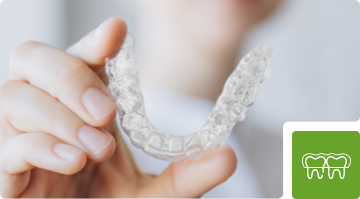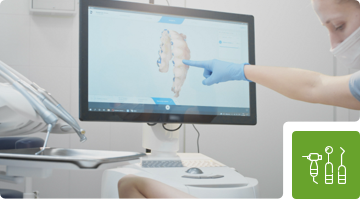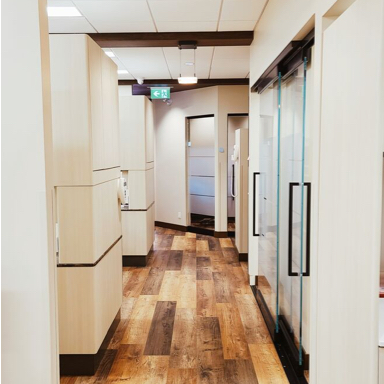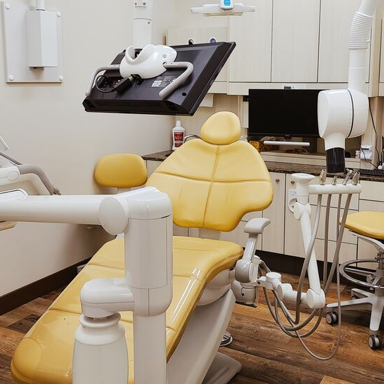Missing teeth affect the appearance of your smile and can also impact how you eat, speak, maintain your oral health, and even your facial structure. If you’re struggling with missing teeth, you may be considering two common options: dental implants or dental bridges.
Where dental implants are surgically inserted into the jawbone to replace missing teeth individually, dental bridges use existing teeth as anchors to hold new teeth in place. Whether replacing a single tooth or multiple teeth, understanding these options and their benefits will help you make an informed decision.
What Is a Dental Implant?
A dental implant is a surgical option for replacing missing teeth. It’s designed to replicate the function and appearance of a natural tooth while providing longevity and durability.
Dental implants work by securing a titanium post into the jawbone and placing an artificial crown overtop. Since they bond with your jawbone through a process called osseointegration, they become a part of your mouth’s structure over time.
Dental implants are durable, often lasting 15 years or more with proper care, and provide a natural look and feel while preserving bone health by stimulating the jawbone. However, they require surgery with potential risks, involve a lengthy healing process of up to six months, and may necessitate bone grafting if the jawbone is insufficient.
What Is a Dental Bridge?
A dental bridge is a noninvasive method for filling the gap created by missing teeth. It involves anchoring an artificial tooth (or teeth) to the natural teeth on either side of the gap, ‘bridging’ your teeth together.
They are a helpful option because they don’t involve surgery or bone grafting and are often a lower-cost alternative than implants for keeping your neighbouring teeth from shifting. However, they might not be right for everyone, particularly if you have weakened or damaged adjacent teeth.
Dental Implant vs. Bridge: How to Choose
While both options effectively restore missing teeth, their suitability depends on individual circumstances, like:
1. Number of Missing Teeth
- Single tooth replacement: Dental implants are generally a good solution for replacing one tooth.
- Multiple missing teeth: Dental bridges (or implant-supported bridges) can typically effectively address gaps with several missing teeth.
2. Oral Health & Jawbone Integrity
Your dentist will evaluate the health of your gums and jawbone. Implants require a strong, healthy jawbone, whereas bridges can work in cases where bone density is low.
3. Treatment Time
- Dental implant: The healing process may take months due to the osseointegration process and how well your jawbone responds to the implant.
- Dental bridge: Bridges can often be completed in fewer visits, offering a quicker solution.
Why Restoring Missing Teeth Matters

Missing teeth impact more than just your smile. They can lead to shifting teeth, difficulties chewing, speech changes, and even bone loss over time. Both dental implants and bridges help maintain proper alignment, preserve the shape of your face, and restore your confidence.
What’s the Best Option for You?
At Chinook Village Dental, we understand that every patient is unique. Our compassionate team is here to assess your oral health, explain your options in detail, and guide you in choosing the perfect solution for your needs.
Ready to explore how dental implants or bridges can transform your smile? Schedule your consultation with us. Together, we’ll take the first step toward creating a smile that makes you feel confident every day.














